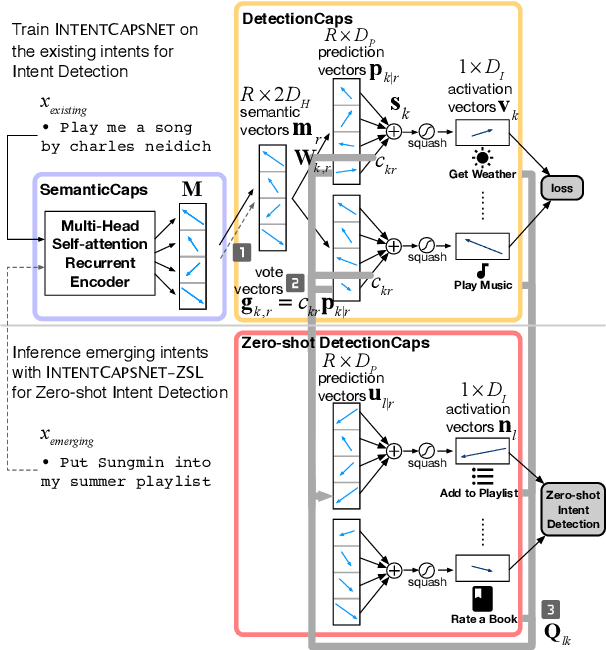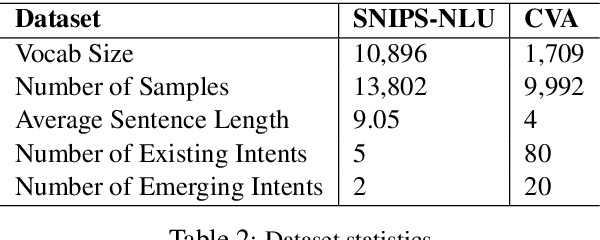Zero-shot User Intent Detection via Capsule Neural Networks
Paper and Code
Sep 02, 2018



User intent detection plays a critical role in question-answering and dialog systems. Most previous works treat intent detection as a classification problem where utterances are labeled with predefined intents. However, it is labor-intensive and time-consuming to label users' utterances as intents are diversely expressed and novel intents will continually be involved. Instead, we study the zero-shot intent detection problem, which aims to detect emerging user intents where no labeled utterances are currently available. We propose two capsule-based architectures: INTENT-CAPSNET that extracts semantic features from utterances and aggregates them to discriminate existing intents, and INTENTCAPSNET-ZSL which gives INTENTCAPSNET the zero-shot learning ability to discriminate emerging intents via knowledge transfer from existing intents. Experiments on two real-world datasets show that our model not only can better discriminate diversely expressed existing intents, but is also able to discriminate emerging intents when no labeled utterances are available.
 Add to Chrome
Add to Chrome Add to Firefox
Add to Firefox Add to Edge
Add to Edge